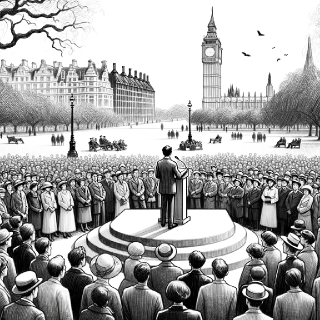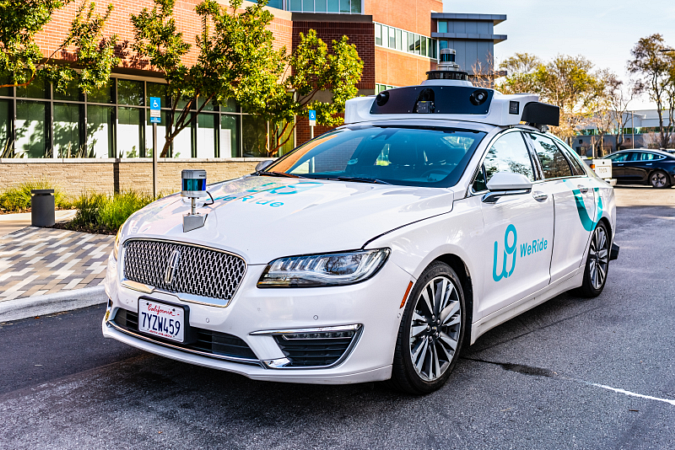
Artificial intelligence has exploded like a virtual H-bomb, leaving a mushroom cloud of hype in its wake. But here’s the uncomfortable truth nobody wants to admit: What we call “artificial intelligence” is neither artificial nor intelligent. It’s essentially a sophisticated human-made pattern recognition system with some degree of self-modification and a notorious inclination to hallucinate.
The Blabbermouth Revolution
Ever since ChatGPT became mainstream, everyone has started using it because it can produce endless streams of content at a low cost. The problem with this new digital toy is that it is little more than a digital blabbermouth—the equivalent of that person at every party who can talk about anything but actually knows nothing. Current large language models are like such ennoyingly eloquent individuals with pathologically loose tongues, capable of generating confident-sounding responses on virtually any topic—without any actual comprehension.
And yet, these increasingly popular systems have found their perfect niche. They excel at tasks that nobody really wanted to do in the first place—those “bullshit jobs” that anthropologist David Graeber wrote about. LLMs have become the miracle cure that helps you maintain your workplace sanity while doing essentially nothing productive. They’re the ultimate enablers of busywork, which helps create an endless stream of content that nobody actually wanted in the first place.
The Economics of Fake Intelligence
Here’s where basic economics kicks in. Now that everyone is using these tools, the free market mechanism becomes apparent: since this kind of “AI” is cheap, the results are also cheap. If something is easy to get, it automatically becomes worthless. “It’s the economy, stupid” all over again.
Thus, no matter how much it is hyped and glorified as the supposedly greatest innovation since sliced bread, LLMs might become virtually useless after all. Easy come, easy go. Just think for a minute (and you can still get it right without asking your favorite chatbot): When everyone can generate a thousand-word essay in thirty seconds, what’s a thousand-word essay worth?
For What It’s Worth
We might assume it’s easy to distinguish between LLM-generated and genuine human content. I think most of us still have this ability. However, there is a long-term, subtle effect that is likely to occur gradually, perhaps too slowly to spot it: We will likely witness a “convergence crisis.” The new generation is growing up with LLM-generated content. They could actually stop learning anything else because genuine content will be too expensive. To them, this artificial output is the “real thing”—the mental baseline for what writing, thinking, and creativity are supposed to look like.
The older generation, which can still distinguish between artificial and authentic content, will diminish. Ironically, the older generation—those who remember what genuine human thought and creativity looked like—may become the proverbial one-eyed among the blind. They will retain a form of literacy that is becoming increasingly rare: the ability to recognize authentic human intelligence when they see it.
This “convergence” won’t happen overnight. It will likely take decades for LLMs to become sufficiently advanced to be truly indistinguishable from human output. But the cultural damage is already eroding the way we think and what we perceive as “normal.” We’re training an entire generation to accept mediocrity as excellence, to mistake pattern matching for thinking, and to value quantity over quality.
There’s no such thing as a free lunch. Cheap content—while nearly free—will have its price eventually. That price is the erosion of critical thinking.
The Value of the Authentic
In this digital ocean of infinite, worthless content, only original ideas, authentic creativity, and genuine human insight will likely retain value. The irony of AI conquering the world is that, in creating a system that enhances human intelligence, we have made natural intelligence more precious than ever.
This kind of genuine, human-value-based approach may become scarce. The future belongs not to those who can generate the most content, but to those who can still think original thoughts. Those “old-fashioned” thinkers will still be able to recognize the difference between the real and the artificial. In a world drowning in digital blather, silence and authenticity become revolutionary acts.
The AI revolution promised to extend human intelligence. Instead, it may have created the ultimate test of whether we can preserve what makes us genuinely human in the first place.
Let’s start a conversation on LinkedIn or X.com (formerly Twitter).
I am a project manager (Project Manager Professional, PMP), a Project Coach, a management consultant, and a book author. I have worked in the software industry since 1992 and as a manager consultant since 1998. Please visit my United Mentors home page for more details. Contact me on LinkedIn for direct feedback on my articles.





